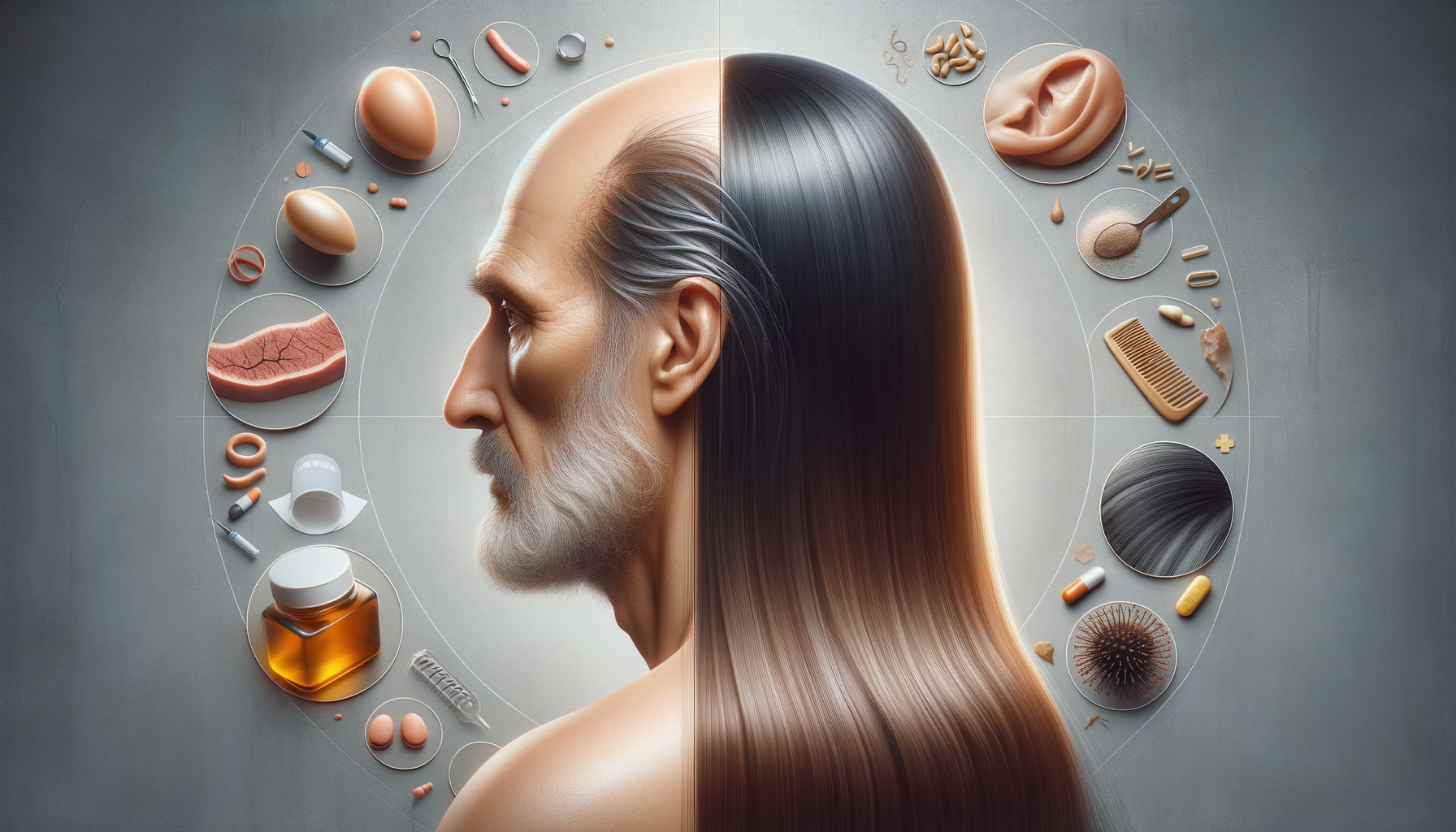Understanding Hair Loss: Causes, Treatments, and Emotional Impact
Hair loss is a common concern that affects millions globally, impacting not just appearance but also emotional well-being.

Introduction to Hair Loss
Hair loss is a prevalent issue affecting both men and women worldwide. While it is often seen as a cosmetic concern, the implications of hair loss extend far beyond appearance. It can influence self-esteem, confidence, and even social interactions. Understanding the nature of hair loss is crucial for addressing its root causes and finding effective solutions. This article delves into the various aspects of hair loss, offering insights into why it occurs and how it can be managed.
Common Causes of Hair Loss
Hair loss can arise from a variety of factors, each contributing differently to the condition. One of the most common causes is genetics, often referred to as androgenetic alopecia. This hereditary condition affects millions and is characterized by a gradual thinning of hair across the scalp. Hormonal changes, particularly those related to pregnancy, menopause, or thyroid issues, can also lead to hair loss.
Environmental factors play a significant role as well. Stress, poor diet, and exposure to harsh chemicals can weaken hair follicles, leading to increased shedding. Additionally, certain medical conditions such as alopecia areata, scalp infections, and chronic illnesses can result in hair loss. Understanding these causes is the first step in identifying potential treatments and preventive measures.
Effective Treatments for Hair Loss
Addressing hair loss effectively requires a tailored approach, as the treatment often depends on the underlying cause. For those experiencing genetic hair loss, medications such as minoxidil and finasteride have shown promise in slowing down the process and promoting regrowth. These treatments, however, require consistent use and may not work for everyone.
Non-medical treatments include hair transplantation, a procedure that has gained popularity for its ability to provide lasting results. This surgical option involves moving hair follicles from one part of the body to the balding area, offering a natural-looking solution. Additionally, low-level laser therapy and platelet-rich plasma (PRP) treatments are emerging as innovative options for stimulating hair growth.
Emotional and Psychological Impact of Hair Loss
The emotional toll of hair loss can be profound, affecting an individual’s mental health and social life. Many people experience a loss of confidence and self-esteem, which can lead to social withdrawal and depression. The psychological impact is often underestimated, yet it is a critical component of the hair loss experience.
Support groups and counseling can be beneficial for those struggling with the emotional aspects of hair loss. Connecting with others who share similar experiences can provide comfort and understanding, helping individuals cope with the changes they face. Moreover, focusing on self-care and embracing alternative hairstyles or wigs can also boost confidence and improve quality of life.
Preventive Measures and Lifestyle Changes
Preventing hair loss involves adopting healthy lifestyle habits that support hair health. A balanced diet rich in vitamins and minerals is essential for maintaining strong hair follicles. Nutrients such as biotin, zinc, and omega-3 fatty acids are particularly beneficial for hair growth.
Reducing stress through regular exercise, meditation, and adequate sleep can also have a positive impact on hair health. Avoiding harsh hair treatments and minimizing the use of heat styling tools can prevent unnecessary damage to the hair shaft. By incorporating these preventive measures, individuals can reduce the risk of hair loss and promote healthier hair growth.
Conclusion: Embracing Change and Seeking Solutions
Hair loss is a complex condition with far-reaching effects on those who experience it. While the journey to understanding and managing hair loss can be challenging, it is important to remember that solutions are available. By exploring the causes, treatments, and emotional impacts, individuals can make informed decisions about their hair health.
Ultimately, embracing change and seeking support from professionals and peers can empower individuals to navigate the challenges of hair loss with confidence. Whether through medical treatments, lifestyle adjustments, or emotional support, there are paths to finding peace with hair loss and enhancing overall well-being.